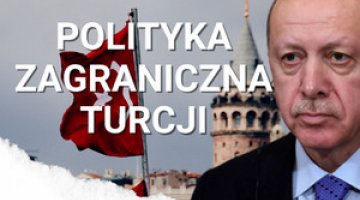Analyses
Turkey: Erdogan is set to win, but not in style
Local elections were held in Turkey on 30 March. According to exit poll results, the ruling Justice and Development Party (AKP) won the election with around 45% of the vote, improving on its result of 38% in 2009. This is the AKP’s sixth electoral victory in a row since 2002. Turnout was around 90% (participation in elections is mandatory).
Commentary
- The serious problems the government camp has faced over the past year, above all the mass anti-governmental problems (in the summer of 2013 and later) and the proofs of abuse of power and corruption among the ruling class revealed in the past few months all turned the local election into a vote of confidence for Prime Minister Recep Tayyip Erdogan. The AKP’s convincing victory should be viewed as a success, confirming his strong mandate to rule Turkey and further strengthening his personal dominance in the country.
- The election results indicate that despite the increasingly autocratic character of Erdogan’s rule (control of the media, restricting freedom of speech online, interference in the work of the judiciary and brutal suppressions of protests), he is still highly trusted by the public. This is an effect of the unquestioned achievements of the AKP’s rule, stretching over more than a decade, which has brought the country political stability, an improved standard of living, infrastructure development, better healthcare and growing international prestige.
- Simultaneously, for the first time in Turkey’s modern history, the election was accompanied by a number of controversies concerning the conduct of the election process and the accuracy of its result. Once the polling stations were closed, there were power cuts in dozens of places across the country, which complicated the work of electoral commissions. Allegations have been heard that ballots cast in support for opposition parties were destroyed or disregarded during the count (for example, photographs of partly burnt ballots have been published online). The unsuccessful opposition candidates for mayor of Istanbul and Ankara (in the latter case, the difference in support levels was around 1%) have questioned the result, and insist that the ballots be recounted. It seems unlikely that the results on the scale of the country as a whole could be seriously rigged. However, the irregularities seen during the election will be presented as proof of the government’s non-democratic nature by its opponents and will add to a further increase in political and social tension.
- The AKP’s sweeping victory serves as confirmation that Prime Minister Erdogan’s policy is correct (he made this clear in the address to his supporters in the evening on 30 March) and gives him a stimulus to continue settling accounts with his real and implied opponents (above all, the social-religious movement led by Fethullah Gulen, his erstwhile ally –they have been in a state of open war since last December). The prime minister’s electoral success has undermined the position of moderate figures in his party, above all President Abdullah Gul, and has greatly increased the likelihood that it will be Erdogan and not Gul who will stand as the AKP’s candidate in the presidential election this year. Consequently, a continuation of the confrontational rhetoric, the use of the state apparatus for political goals and a further curb on civil liberties should be expected in Turkey in the immediate future. In turn, Erdogan’s ever stronger monocracy will cause a deepening polarisation of society and repeated outbursts of instability.




